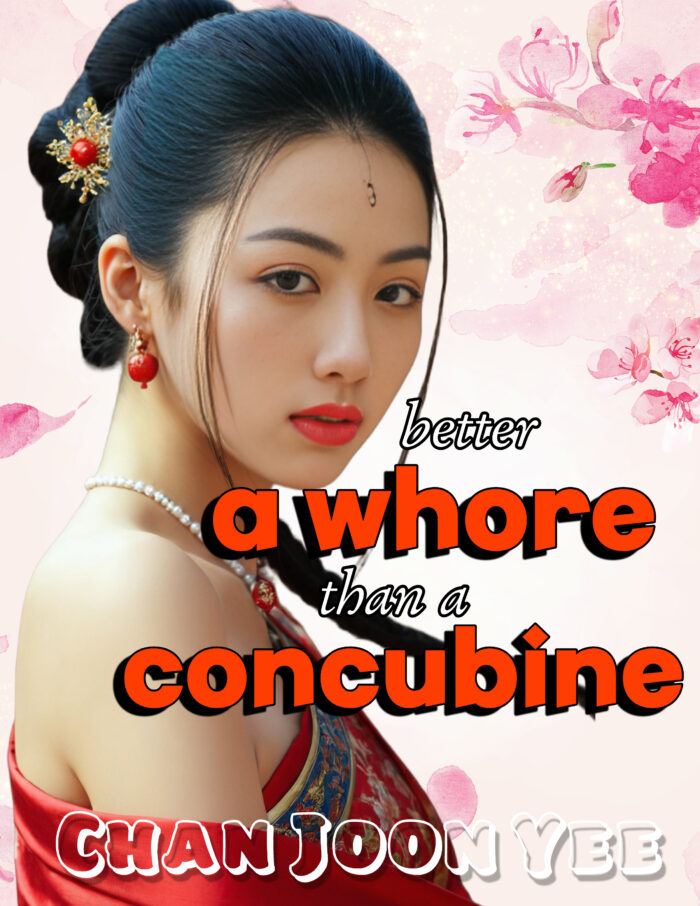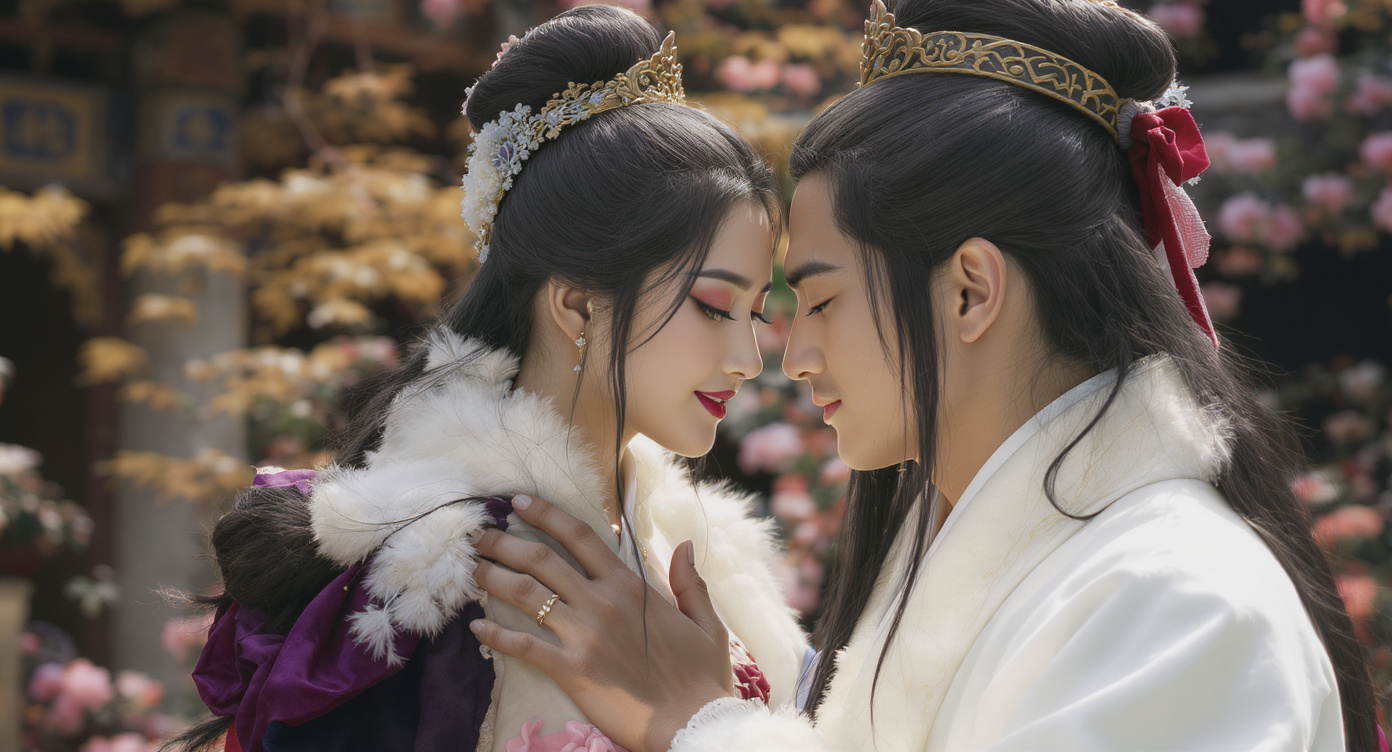Sex, Romance & Talented Men
Let’s begin with talented men. Talented men are called 才子 in Chinese. Hongkong once had 4 才子, also known as 香港四大才子, namely martial arts novelist Jin Yong (1924-2018), TV host/lyricist James Wong (1941-2004), science fiction writer Ni Kuang (1935-2022) and gourmet expert Chua Lam (1941-2025). As I’ve pointed out repeatedly, Chua Lam was a Singaporean!
Of course, none of the men above had the audacity to claim the title of 才子. It was the media that casually conferred the title on them. Actually, the term “talented man” is not an adequate translation for 才子 because since ancient times, the Chinese already have a list of 20 criteria for a 才子 to fulfill and it may be shocking in our modern context.
琴棋书画拳,诗词歌赋文,山医命卜讼,嫖赌酒茶烟
To sum up, the ancient Chinese definition of a “talented man” or 才子 is a man who is good at music, literature, martial arts, healing arts, geomancy, fortune telling, law and carnal pleasures. A tall order indeed! No wonder nobody ever dared claim to be a 才子, especially when the last 4 out of 5 requirements are actually vices – prostitution, gambling, alcohol and tobacco. The only decent thing is tea.
I was left scratching my head when I first encountered the 20 criteria for qualifying not just as a talented man, but as a Chinese 才子. I certainly wouldn’t want to be branded as one. So why are these 4 vices included in the requirements for one to be regarded as talented? 3 of them are still relatively easy to explain. Wines, teas, tobacco come in numerous varieties. Each has its own encyclopedia. Many betting games were invented since the dawn of Chinese civilisation. Men have been gambling on horse races, cockfights and dice throws for thousands of years. Later dynasties saw games increasing in complexity. Perhaps that was what made it seem sophisticated. Gambling was banned in the state of Qin during the period of the Warring States, but with the fall of Qin, it made an instant comeback.
Prostitution was first legalised by the imperial court during the Tang Dynasty, continuing into the Ming Dynasty. Far from being shady establishments operated by crime syndicates, brothels were imposing pleasure houses that served scholars and merchants. Song Dynasty poet Liu Yong 柳永(985-1053 AD)was a regular cutomer at brothels and he even wrote many songs that were performed by the courtesans. Jealous of his popularity, Confucian scholars labelled his songs as vulgar. In the last imperial examination that he attempted, the emperor was informed of his reputation and barred him from all official posts.
Disappointed and angry, Liu Yong left the capital of Kaifeng after writing several verses, bidding farewell to his many lovers. There is a common saying in olden days that women without talent are virtuous. That’s because girls didn’t go to school and the most educated women well versed in chess, music, painting and calligraphy were mostly courtesans who interacted with scholars and 才子 on a daily basis. It would be quite safe to say that 才子 in those days were highly knowledgeable, versatile, musically inclined, romantic and physically fit men who smoked, drank and frequented brothels and gambling dens.
Let’s come back to the present and take a look at the 4 seemingly unqualified “才子” from Hongkong (1 from Singapore), you would notice that they were all very knowledgeable people, but they specialised in something. They smoked, drank, broke a lot of rules and were not ashamed to display their high testosterone levels. Hence the common term 风流才子. Well-behaved academics are seldom called 才子 even though they are knowledgeable. What set these seemingly flippant men apart from prudish scholars and professors? That is what we need to explore to find a modern, more practical definition for 才子.
As a minister once said, demographics have changed. Women are mostly as educated as men and scholars no longer need to go to a brothel to meet an intellectual equal. Research has shown that higher intelligence is frequently correlated with a higher sexual desire. All 4 of the above 才子 were “afflicted”.
Not much is known about Jin Yong’s 金庸 attitude towards sex, but there is certainly quite a bit of it in his novels. Jin Yong was married thrice. His third marriage was to 16-year-old May Lam in 1976. She was working as a waitress and identified herself as fan of Jin Yong’s novels.
Jin Yong’s famous quotes on male-female relationships include:
“Deep love is neither exclusive nor randomly inclusive.”
“True love is a combination of lust and emotions without lust dominating.”
Not much is known about Jin Yong’s private life as he was not as candid as the other 3.
Ni Kuang confessed to his high sex drive and the liberal attitude in his works. He believed that men are attracted to beauty. Women are attracted to men who give them complete attention. Ironically, men are also thinking and logical creatures while women are feeling, meticulous creatures. The greatest tragedy between the sexes is when both sides expect the other side to see eye to eye with them. The disconnect between the sexes is eternal. Once both sides start to mutually understand, they will stop falling in love. His maxim: 好色不乱来, 玩味而不堕落. Lust without indiscrimination, enjoyment without depravity.
James Wong 黄霑 once said that lust is not a sin; it is a tribute to beauty. He believed that lust is not a physiological response but a conscious pursuit of something beautiful. He was married twice with his second wife being 30 years his junior. He blamed his lust on his lack of immunity to women but he swore that he would never cheat them. He outlined the stages in male-female relationships from the man’s point of view.
- Ogling (visual)
- Establishing contact (curiosity)
- Getting closer (exploration)
- Intimacy (conquest)
- Maintenance (attachment)
- Distancing (boredom)
- Looking back (Remembering)
The wisest men, to James Wong, are the ones who can stop at maintenance. The most controversial remarks he made were:
“男人不坏,女人不爱;男人太坏,女人更爱。” Well-behaved men are not loved. The really bad ones are loved even more.
“色是天性,不色是病。” Lust is in our nature, those without it are sick
“女色如酒,戒之太迟会醉,戒之太早会空虚。” women are like wine, late abstinence leads to intoxication, early abstinence leads to emptiness.
In spite of all his controversial statements and his dirty jokes, Hongkong society saw wit, candour and wisdom instead of lewdness in him. Of course, he might have gotten into trouble in feminist spheres. People were more easygoing, open-minded and less triggered back then.
Jin Yong described Chua Lam: “琴棋书画,酒色财气,吃喝嫖赌,文学电影”
He’s artistic, an authority on literature, movies, gambling, food, alcohol and sex. Chua Lam took it as a compliment.
Chua Lam took broadness of mind to a whole new level, confessing to having had as many as girlfriends as the number of candles on his birthday cake. Hated by Singaporean aunties, he pointed out that monogamy is a Western invention. However, he was married once and never divorced. He argued that he was forced into a semi-arranged marriage by his mother and once told his wife that he would seek approval from her before starting a relationship with a woman.
To Chua Lam, sex ought to be looked upon as something as harmless and non-committal as shaking hands. Commitment ought to be optional and not obligatory. A man is only “unfaithful” when he complains about his wife to another woman. To him, the perfect lover would be one who checks his clothes for her hair before he leaves. When she gets married, he would gladly walk her down the aisle like her father. Refreshing or disgusting? You decide. All four men were considered “bad” in a charming, thought provoking way and HK women loved them.
Like Liu Yong, the four “才子” were easygoing, carefree individuals who kept thinking of ways to push the envelope, not just within their craft but also attitudes towards life. Not surprisingly, Chua Lam didn’t fit well in restrictive Singapore society but managed to find a lot more space for growth in Hongkong. James Wong and Chua Lam were financially embarrassed at some point in their lives. They had taken “gambles” with risky business ventures. Adventure or risk taking was certainly in the nature of the 4 men.
So let’s get back to the question. What constitutes a 才子 or a talented man or a man of letters. A man of letters refers to a writer or a learned person. That’s simple enough, but we still need a modern definition for 才子. Can we use the four talented men from HK as a guideline? I’m afraid even they, who were legends back in the 1980s (and who influenced me to a certain extent), may be obsolete now.
But 琴棋书画拳 are even more so. With better knowledge of science and healthcare nowadays, tobacco should taken off the list and gambling should be replaced by an adventurous spirit. To me, a talented person, male or female, has to be intelligent, knowledgeable, interesting, adventurous, multi-talented with creative and unconventional thinking. Depending on the latest woke trends and the open-mindedness of the society, limits may be set on unconventional thinking. Chua Lam once said that his childhood ambition was to open a brothel. With society getting less tolerant and more easily triggered nowadays, he was probably the last of the 风流才子.

Having said all that, it’s important to note that these four talented men thrived in HK at a time when people were still reading books and watching TV. Practising their individual crafts, they were well off or even wealthy. Today’s talented men may not have much market value in an anti-intellectual world of TikTok. Perhaps I’ve still been too idealistic. Today’s “talented men” could be crass and foul mouthed Ah Bengs. Even if nobody recognises them as talented men, they would certainly have higher market value. Chased Chua Lam out but kept Wang Lei. What a deal.
Dewdrop Books – Fiction and non-fiction with a focus on the colourful and exotic Asian realm. Check out our titles.





